I am one of those people who has to make a list every time I go to the store. Even if I’m just grabbing three items (which will likely turn into six items by the time I reach the checkout), I have to jot them down in my phone, or I’ll inevitably forget one. But it’s always wise to take a list to the store, especially if you’re shopping for an entire family.
One man recently shared a story on Reddit detailing how his brother refused to see how sacred a shopping list can be when getting groceries. In turn, he decided to maliciously comply with his sibling’s requests. Below, you’ll find the full story, as well as some of the replies amused readers shared.
This man has been tasked with making the shopping list for his family

Image credits: picjumbo.com (not the actual photo)
But when his brother refused to help out, he decided to write down exactly what his sibling asked for


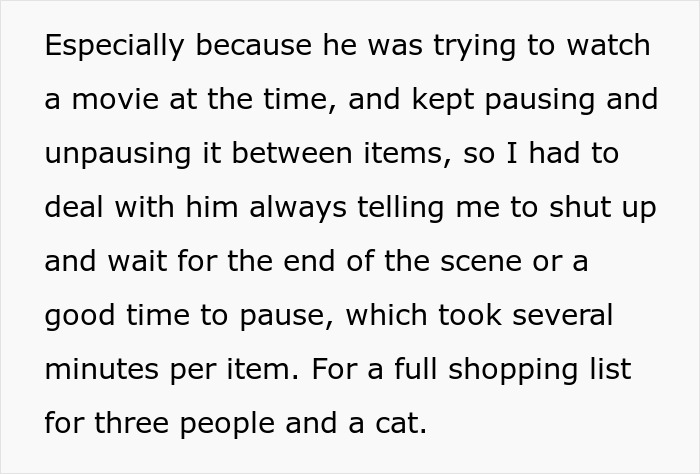



Image credits: Atoms (not the actual photo)

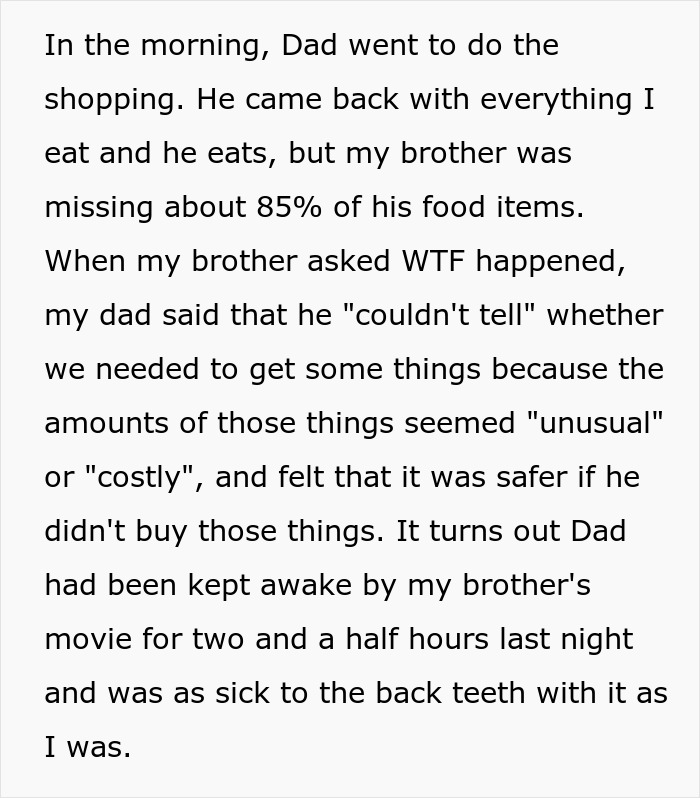
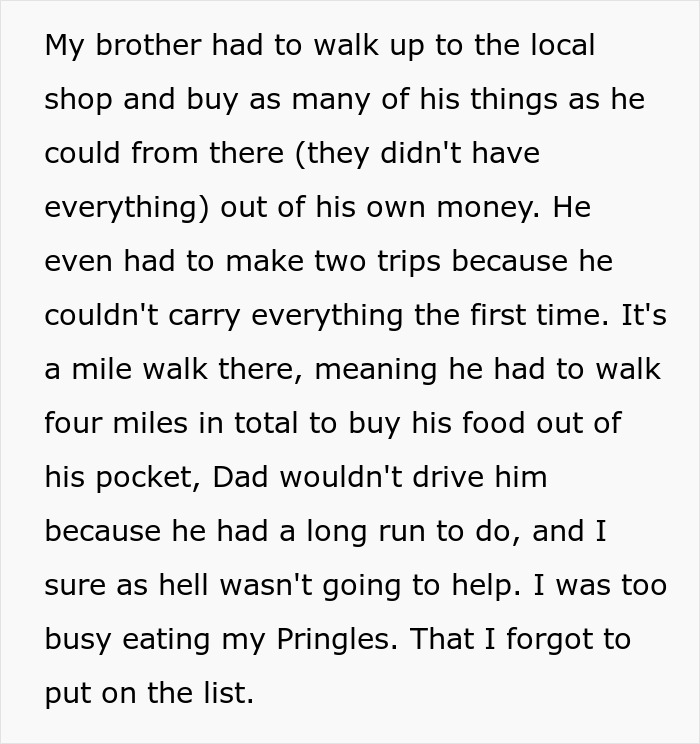

Image credits: ThreeFifthsOfABrain
Grocery shopping can easily take up a large chunk of our time and budgets each month
What kind of grocery shopper are you? Do you enter the store with a prepared list and simply grab all of the items needed while ignoring any other temptations? Or do you boldly enter the store without any direction and pick up whatever you’re in the mood for on that particular day? According to one study, a whopping 84% of shoppers almost always have a list on hand when getting groceries.
And it makes sense to enter the store prepared, as most of us don’t want to spend any more time or money shopping than we absolutely have to. DriveResearch reports that the average grocery shopping trip in the United States costs consumers $174, and the majority of people expect to spend even more on food and necessities in 2024 than they did last year. These trips to the shop also take valuable time out of our weeks, as most of us spend more than 30 minutes in the store, while over a quarter of us take more than 45 minutes to grocery shop.
When it comes to the most popular items people pick up at grocery stores, dairy products, fresh produce and snack foods take the lead. And even though there are a variety of online services available when it comes to getting your food for the week, 74% of grocery shopping still takes place in stores. If you’re trying to avoid crowds, you might want to skip shopping between 10 a.m. and 2 p.m. on Saturdays, as that’s the busiest time for most shops.
Creating a list before heading to the store will simplify the process
According to DriveResearch, 39% of people go over budget when grocery shopping each month. And one tactic that might help shoppers cut back is making a detailed list before going to the store and being sure to stick to it. In fact, one study by J. Jeffrey Inman at the University of Pittsburgh found that having a list on-hand reduced the number of unplanned items participants bought while grocery shopping.
Another 2020 study by researchers at Carleton University found the same result was true while shoppers were buying their groceries online. As far as why this happens, Johanna Peetz, PhD, explained for Psychology Today that it’s easier to control our impulses when we’ve set our shopping goals ahead of time. Making the list without being tempted by all of the intriguing items in stores can make it much easier to stick to what we really need.
Writing down the items we want ahead of time can simply help us remember them as well. And when you’re thinking about what you actually need and where to grab those items, you won’t be as easily influenced by the other distractions in the store. Finally, Dr. Peetz notes that it can help to keep an eye on exactly how many items you plan on buying. If your list has 20 items on it, you’ll probably notice if your cart already has 20 items in it when you’re only halfway through your list.
Shopping lists can prevent unplanned purchases and help us save money
Aside from potentially saving you time and money, there are other great reasons to make a shopping list before heading to the store. The Organised Housewife notes on her blog that these lists can also help you meal plan. If you decide on the dinners you’re going to make this week while writing up your list, you know that you’ll have the necessary ingredients on hand. Plus, that’s one less decision you’ll have to make when exhausted from a long day in the office.
Creating lists also means that you’ll probably have to take less trips to the store in general. There’s nothing worse than getting home and realizing that you forgot a necessary ingredient for tomorrow’s dinner, and now you have to make another stop, which might delay the meal and result in more unplanned purchases. It’s much less stressful, and more efficient, to plan ahead before going to the store.
We would love to hear your thoughts on this story of malicious compliance in the comments below, pandas. Do you think this person’s brother deserved to learn a lesson after refusing to help with the shopping list? Feel free to share, and then if you’re interested in checking out another Bored Panda piece discussing malicious compliance with family members, look no further than right here!
Readers were amused by the story and applauded the man for his malicious compliance










Some also shared their best tips for making effective grocery lists


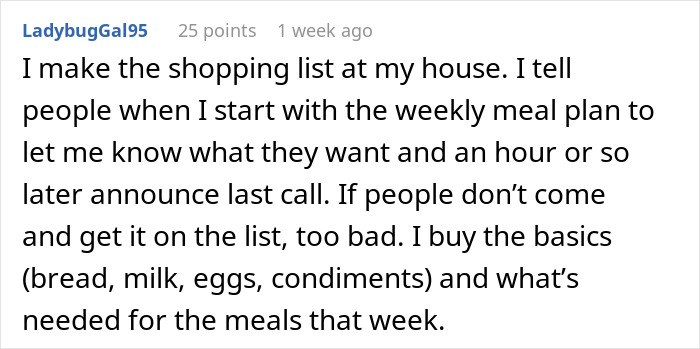
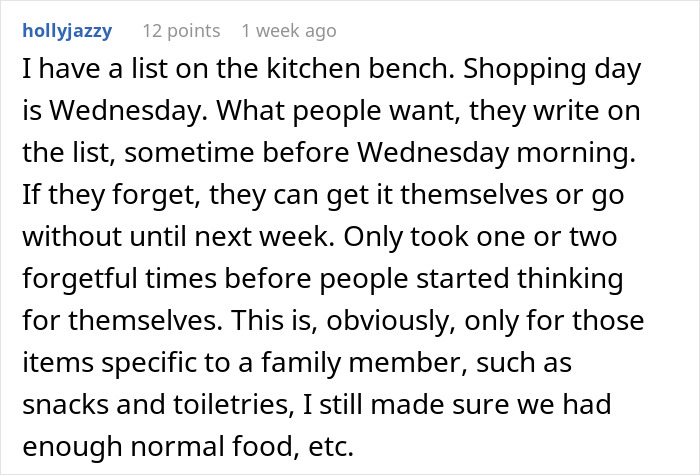



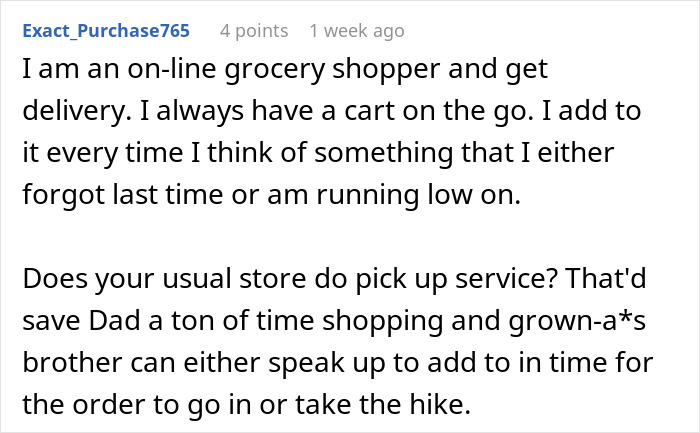
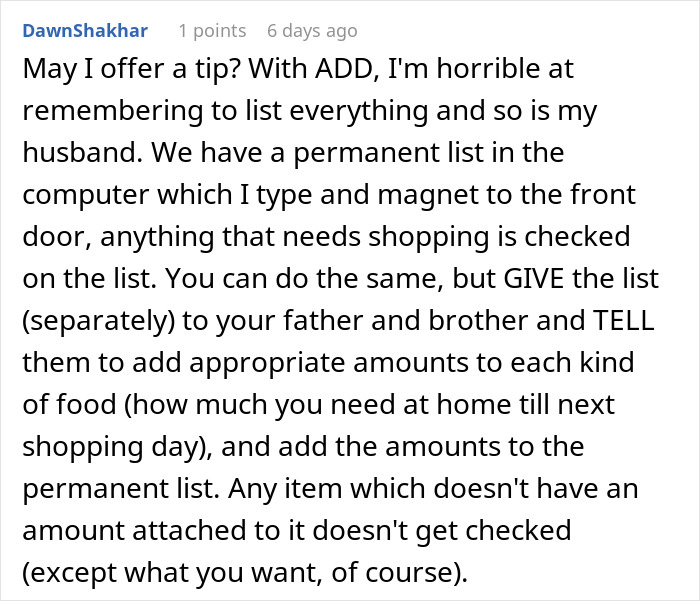
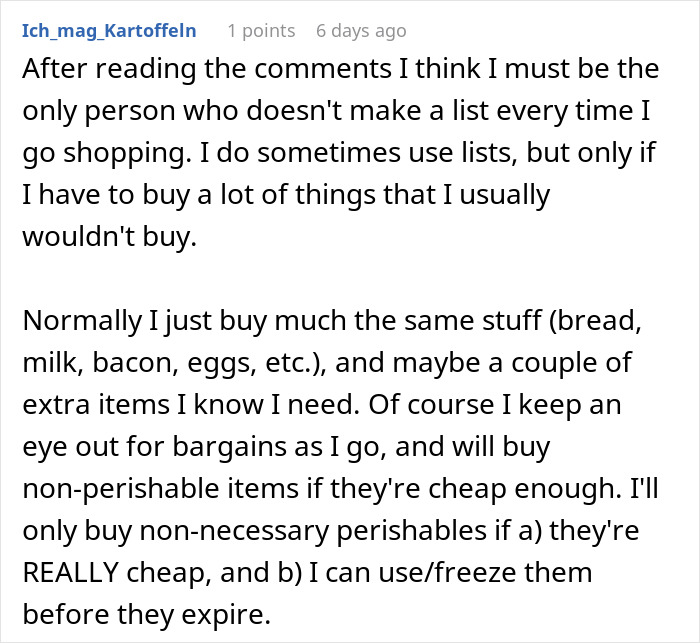












 English (US) ·
English (US) ·